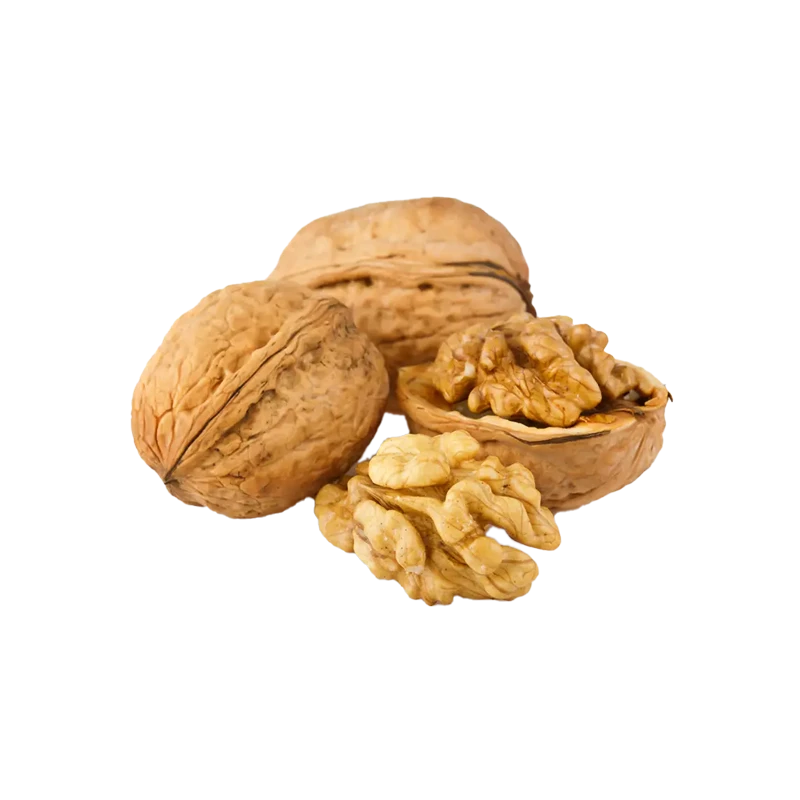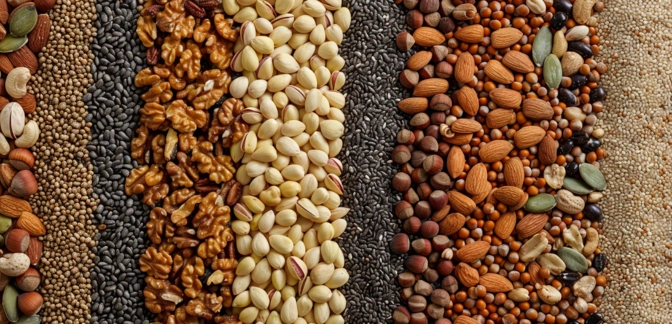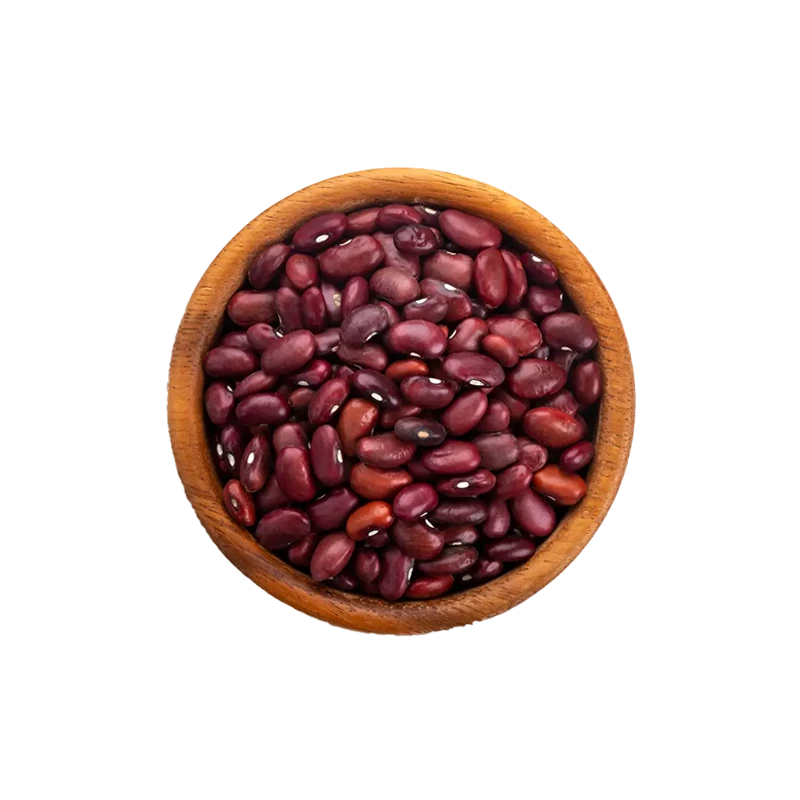Nuts — Nutrients, Health Benefits, and Shopping Tips

Written by Listonic Team
Last update on September 4, 2024
Nutrition facts
Nutrition facts
Amount per 100 g
Calories
🔥 607 kcal
| Nutrients per: 100 g | Value | % Daily Value* |
|---|---|---|
| Carbs | 21 g | 7.64% |
| Fiber | 10 g | 35.71% |
| Sugars | 4 g | 8% |
| Glycemic Index | 15 | - |
| Protein | 20 g | 40% |
| Sodium | 1 mg | 0.04% |
| Total Fat | 54 | 69.23% |
*The % of Daily Value (DV) tells you how much a nutrient in a serving of food contributes to a daily diet. 2,000 calories a day is used for general nutrition advice.
20 g
🧀 Good Protein Content
10 g
🥔 Good Fiber Content
Did you know?
Health benefits
- High in healthy fats, particularly monounsaturated and polyunsaturated fats, which support heart health and provide energy.
- Rich in protein, essential for muscle growth, repair, and overall body function.
- Contains fiber, promoting digestive health, regular bowel movements, and a healthy gut microbiome.
- Rich in essential vitamins and minerals such as Vitamin E, magnesium, and selenium, which support overall health and well-being.
- May help regulate blood sugar levels and support weight management by promoting satiety.
Health risks
- High calorie content which can contribute to weight gain if consumed in large quantities, especially as a snack or in calorie-dense foods.
- High fat content though mostly healthy fats, excessive consumption can still contribute to increased caloric intake and weight gain.
- Potential for allergic reactions in individuals with nut allergies, causing symptoms like itching, swelling, difficulty breathing, or anaphylaxis.
- Risk of digestive discomfort such as bloating or gas when consumed in large quantities due to their high fiber content.
How to choose nuts
Look for nuts that have clean, unbroken shells, or if buying shelled, ensure they appear plump and are free of any discoloration. The texture should be crisp, and the nuts should have a natural sheen.
Do not purchase nuts that have a rancid smell or show signs of mold, especially if the nuts are bulk-stored. Nuts that are shriveled or have an oily residue should also be avoided, as this indicates they are past their prime.

How to store nuts
Nuts should be stored in an airtight container in a cool, dry place to maintain their freshness. Refrigeration can extend their shelf life up to six months. Properly stored, nuts remain crunchy and flavorful.
Exposure to air and light can cause nuts to go rancid. Avoid storing them near heat sources or in open containers. Keeping them in a dark, cool cupboard or in the refrigerator ensures they retain their quality and nutritional value.
✅ Extra Tip
How long do they last?
Nuts can last for 6-12 months when stored in an airtight container in a cool, dark place. For longer storage, nuts can be refrigerated or frozen, where they can last up to 1-2 years. Proper storage helps prevent them from becoming rancid.
What to do with leftovers?
Leftover nuts can be used in a variety of sweet and savory dishes. Chop them and sprinkle over salads, yogurt, or oatmeal for added crunch and flavor, or mix them into baked goods like cookies, muffins, or bread. Nuts are also great when toasted and used as a topping for vegetables or grain bowls.
Use nuts in a trail mix with dried fruits and chocolate, or blend them into a homemade nut butter to spread on toast or use in recipes. If you have a lot of nuts, consider making a batch of candied nuts by coating them in sugar and spices, then baking until caramelized. Nuts can also be added to sauces or pesto for extra richness, or used as a crust for meats or fish. For a quick snack, enjoy nuts on their own, roasted and lightly salted, or mix them into a smoothie for added texture and nutrition.
👨⚕️️ Medical disclaimer
How nuts support specific health conditions
Nuts are a nutrient-dense snack rich in healthy fats, particularly monounsaturated and polyunsaturated fats, which support heart health by lowering bad cholesterol levels. They are also a great source of plant-based protein, supporting muscle health and tissue repair. Nuts contain fiber, promoting digestive health, and antioxidants like vitamin E, which help protect cells from oxidative damage, supporting immune health. Eating a variety of nuts in moderation can contribute to weight management and overall well-being.
Discover products from other categories
Listonic Team
Fact-checked
Our editorial team checked this article to make sure it was accurate at the time of publishing it.
Get the top-rated shopping list app







